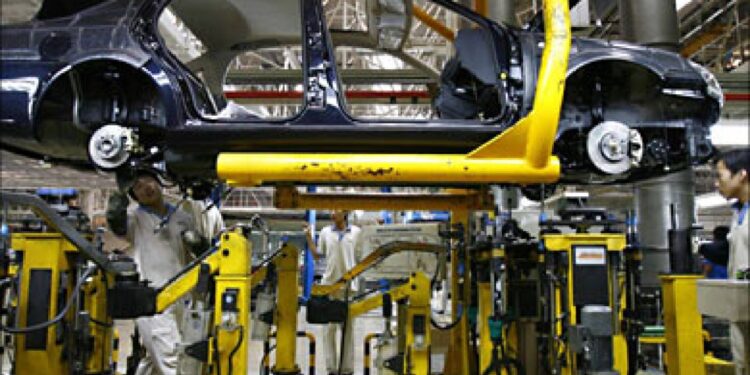The Biden administration is stepping up efforts to protect the U.S. auto sector from China’s growing dominance and what Washington sees as “unfair” trade practices, according to recent reports from Reuters and Investing.
White House economic adviser Lael Brainard gave a speech at the Detroit Economic Club, outlining the comprehensive strategy to address the potential threat posed by the Chinese auto industry, stressing the need to avoid a repeat of what she called the “China shock” that affected industrial communities in the United States in the early 2000s.
Warning of the second “China shock”
“China is flooding global markets with a wave of auto exports at a time when there is excess capacity,” Brainard said, pointing to China’s trade behavior. “We’ve seen this scenario before in the China shock that hit our manufacturing communities in the early 2000s.” This warning highlights concerns that without preventive measures, the United States could once again face the devastating impact of what she calls “China’s aggressive trade strategies.”
Brainard cited an analysis that suggests the Detroit area alone has lost more than 55,000 manufacturing jobs to Chinese competition since 2001.
Prohibition measures and strategies
In a related development, the US Department of Commerce has proposed restrictions on key Chinese components in internet-connected cars on US roads, citing national security concerns. The proposed ban aims to prevent most Chinese cars from entering the US market.
The move is part of a broader administration strategy to ensure that Chinese automakers do not undermine the global competitiveness of the U.S. auto industry, according to Reuters. Brainard stressed the importance of U.S.-made electric vehicles, saying, “Americans have a right to choose the car they want, whether it’s gas, hybrid or electric. But if they choose an electric car, we want it to be made in America, not China.”
Protecting the American Auto Industry
China’s influence on the global auto market has become a major topic in the 2024 presidential race, with Republican candidate Donald Trump expressing concerns that China could dominate auto production in the future.
In response, the Biden administration has imposed significant tariff increases on Chinese imports, including a 100% tax on electric vehicles, aimed at protecting strategic industries from China’s state-backed industrial practices.
Brainard stressed the need for these preventive measures, saying, “In order for companies to be able to invest in new innovative designs and models here in America, they must ensure that their investments are not undermined by Chinese cars being sold at unfair prices.”
Addressing gaps
According to Investing, the administration is also focused on preventing Chinese automakers from circumventing tariffs by setting up factories in Mexico. Brainard noted that the United States is closely monitoring these practices, and that “China’s excess production of electric vehicles will be a major focus when the U.S.-Mexico-Canada Trade Agreement is reviewed in 2026.”
The strategy reflects the administration’s broader effort to avoid repeating past economic setbacks and enhance the U.S. auto sector’s ability to compete in a rapidly changing global marketplace.



